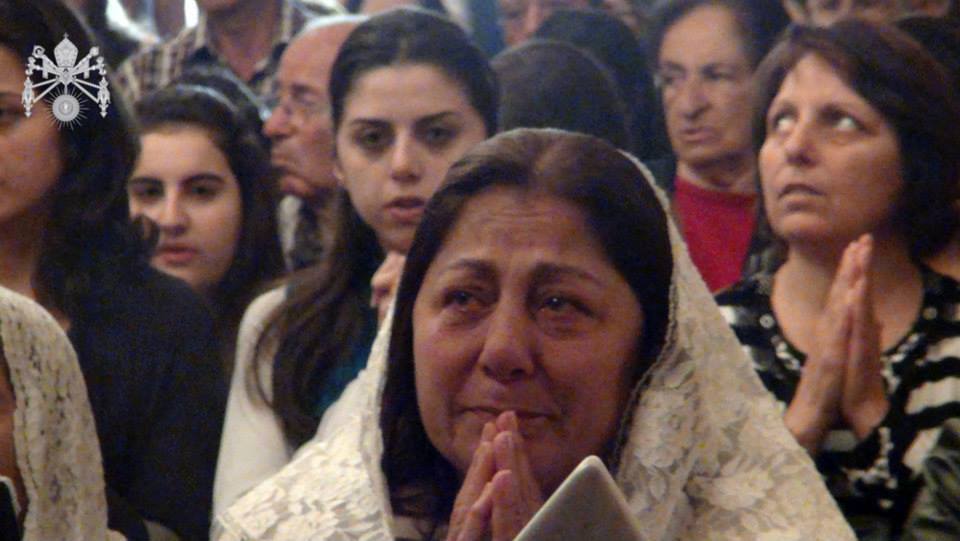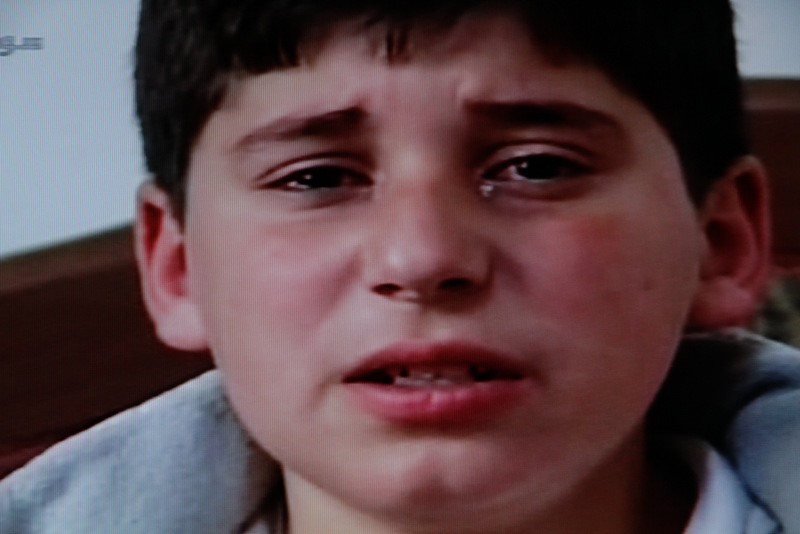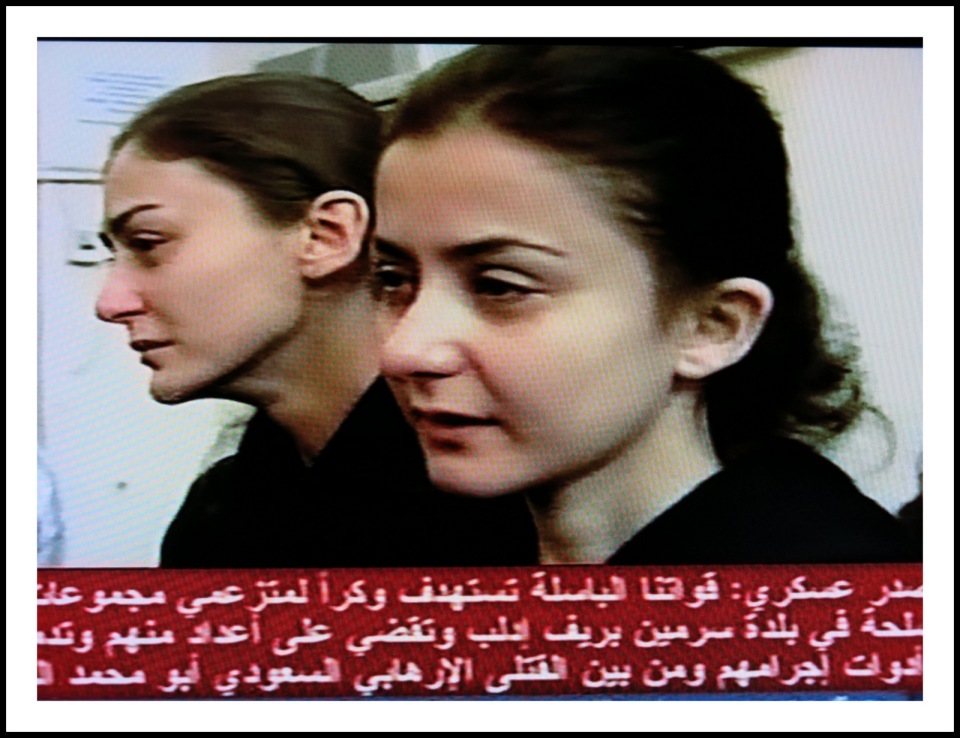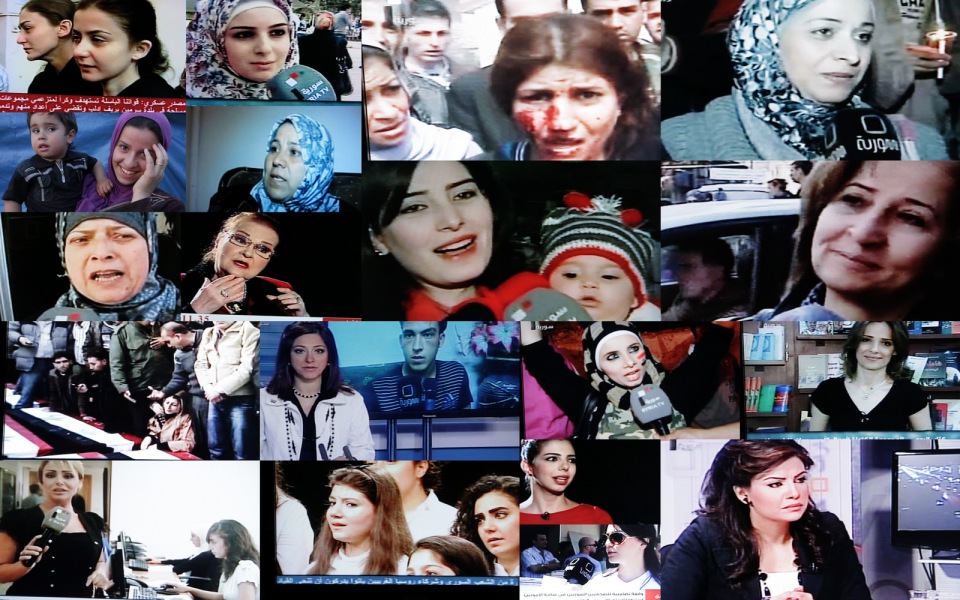Kenneth Roth and “Human Rights Watch”: campaigners for war and terror in Syria
 The war in Syria has entered its fourth year, yet “Human Rights Watch” and its executive director, Kenneth Roth effectively campaign for its prolongation. This article initially published on the AMRIS pages at http://australiansforreconciliationinsyria.org/kenneth-roth-and-human-rights-watch-campaigners-for-war-and-terror-in-syria/
The war in Syria has entered its fourth year, yet “Human Rights Watch” and its executive director, Kenneth Roth effectively campaign for its prolongation. This article initially published on the AMRIS pages at http://australiansforreconciliationinsyria.org/kenneth-roth-and-human-rights-watch-campaigners-for-war-and-terror-in-syria/
HRW avoids informing us of the extent of the suffering of ordinary Syrian people at the hands of 1,000 or more militant groups, many of them dominated by foreign fighters. It is well-known that Al-Qaeda and similar groups operate in Syria and that quite a few Australians have been caught up in the violent extremism in Syria. However, HRW rarely relates the personal stories of terror victims.
Instead it focuses principally on the alleged crimes of the Syrian government, thus fomenting more outrage against the government and the country’s president, outrage which could muffle protest in the west if America or another country carries out a military strike against Syria.
In December 2013, there was information slowly emerging in the media about radical groups attacking Adra, a workers’ town on the outskirts of Damascus. Even the ABC reported that a ‘savage massacre had been committed’.
The video above has a distressing scene of a beheading at the start, which was filmed at the castle Krak des Chavalier in the Wadi al Nasra (Valley of the Christians) region. However, after 5:40 minutes, the remainder of the video is witness testimony from people who escaped Adra after it was besieged by Jabhat al-Nushra fighters.
Armed men have been in control of parts of Adra for some months now and more information is coming out about the degree of that savagery. For example, one witness has related the harrowing story of a mother, mute, as she watched fighters playing with the heads of her recently executed children. There is another account of how women were dragged naked in the street. One witness said one of them had had one of her legs cut off. Doctors and nurses in a clinic were reportedly killed. Workers in a bakery were thrown alive into the bakery’s ovens.
As children were not spared in Adra, a father and mother chose to detonate grenades in their home so they and their two young children would not face the savagery of the jihadis at their door. It has also been reported that children have been thrown from roofs to stop the army’s advance.
When the horrors of Adra were first being reported, HRW was asked for a response. The HRW spokesperson explained it was ‘very difficult to get accurate information’ about Adra to know who was responsible for the abuses, so she could not comment.
Although some of the above stories about Adra come from Western journalists in Syria, I can find no evidence that HRW has written a report on Adra or condemned those who have perpetrated massacres there.
A 24th March 2014 HRW report is titled, “Syria: Unlawful Air Attacks Terrorize Aleppo”. It focuses on what it terms “the indiscriminate nature of the government’s large-scale air campaign on opposition-held parts of Aleppo”. The condemnation of the government is strong: “For three years the Syrian government has declared open season on civilians with almost no consequences”. There are a couple of very slight references to ‘armed groups’ in the report which are almost completely lost in the report’s onslaught against the government. There are no personal stories of the victims of terrorist groups. The word ‘terrorize’ is used in reference to the Syrian government only. It would shock those who rely on HRW to inform them about events in Syria that a Syrian archbishop has recently declared, “Western leaders are screwing all Syrians by supporting terrorists”.
Ironically, this most recent HRW report came out just a day after an article in the Armenian Weekly appeared: “Two Thousand Kessab Armenians Find Safety in Latakia” It presents the story of the people of Kessab, a town near the Turkish border. In this case, people have fled the terror of Al-Qaeda affiliated armed groups which had crossed into Syria from Turkey.

Image from “The Armenian Weekly”
HRW has detailed one massacre committed by ‘rebels’. Around two hundred villagers, mostly women and children, in the province of Latakia were slaughtered in early August 2013, and about the same number were abducted. HRW reported on this massacre in October, two months after it occurred: “You Can Still See Their Blood”.
It is fair, therefore, to contend that HRW is unwilling to educate the world about the fearsome savagery of the extremist groups operating in Syria. There is little sign that it condemns either the extremist clerics who incite hatred and violence or those that fund the Islamist extremists and/or insurgents prepared to commit acts of terror. Moreover, except in its report on the massacre in Latakia, it mostly avoids directly condemning countries which enable foreign jihadis to cross the border into Syria. What should be noted is that HRW does not declare that people or countries should stop supporting the insurgency in Syria. After reporting the massacre and abductions in in Latakia, HRW, states in its report: “Support for these five groups should continue to be withheld until the groups stop committing these crimes and those responsible are fully and appropriately held to account.” (I emphasize ‘until’.)
HRW informants include ‘opposition activists’ who claim that the army or pro-regime militias have committed atrocities. I would contend that rather than being activists for peace as we in the west might expect, these are people who are often involved directly in the insurgency against the Syrian government. They are partisan players and their claims are the fuel for an ongoing war; hence, they should be investigated thoroughly.
Last year in Damascus, I recorded an interview with genuine Syrian peace activists from a group called “The Third Current”. They neither support the government nor the militarized opposition. Their mentor was once a political prisoner, but these activists choose to support the Syrian army, telling me that “the collapse of the national army, despite its mistakes, would result in the collapse of the country and state, similar to (or worse than) Iraq.” (For recorded interview with Syrian peace activists, go to bottom of this page on ‘Socrates and Syria’)
Other informants that HRW relies on are refugees in Lebanon, Turkey and Jordan. Again these people almost invariably make accusations against the government and there is no suggestion by HRW that it should question their veracity, or that it should rigorously examine what might motivate some refugees to make them. For example, are the refugees also fighters or related to fighters? Do they support the establishment of an Islamic state in Syria? If so, what are they prepared to compromise for their beliefs? Or do they make claims out of fear? This human story of war is not told by HRW. Kenneth Roth and his colleagues present a black and white picture of the Syrian conflict.
Kenneth Roth’s wife, Dr Annie Sparrow, was interviewed on ABC radio towards the end of last year. She presented the testimonies of refugees on the Syrian Turkish border who condemned the actions of the Syrian government. Being an Aussie and being a doctor, no doubt she would have had a captive audience. She made many outrageous claims. But whose ‘truth’ did she present? In her interview, Dr Sparrow doesn’t refer to claims about the rape of women and girls in refugee camps, or about the trafficking of human organs (something I heard discussed in Syria in May 2013). In the west, who is determining the discourse on Syria?
 |
|||
  |
Images taken from Syrian TV. The young boy was filmed after a car bomb in Damascus. The Damascus University students in the center were at a vigil in March 2013 for 15 College of Architecture students killed by a ‘rebel’ mortar attack on the university. The mother in the bottom picture is at a funeral service for her young daughter, Vanessa, who was killed along with other students when their school bus was hit by a ‘rebel’ mortar in Damascus in November 2013. (See BBC report below showing Vanessa’s coffin being taken to an Armenian church in Damascus)
It is possible to pursue the truth in Syria with integrity. I believe some foreign journalists have done this, for example, in regards to the Houla massacre and another massacre in Aqrab.
Syria burns and its people continue to suffer. In the meantime, most politicians, journalists, and NGOs in the west choose not to be associated with any stand that could be construed as supportive of the Syrian government. They dare not.
By not taking a much stronger condemnatory stand against the armed groups in Syria and their supporters, HRW not only jeopardizes the lives of millions of people in Syria and the region, but it also puts at risk the peace and security of western societies. Exposing extremist ideologies, foreign jihads and armed insurrections is ultimately in everyone’s interest .
Why is HRW so partisan in its stand on Syria? Is it because one of its most generous donors, George Soros, supports the ‘Arab Spring’ even if it takes decades to settle? Or is it as crass as Roth and Dr Sparrow wanting more invitations to the White House? Keane Bhatt, another critic of Human Rights Watch, has noted how “HRW’s institutional culture is shaped by its leadership’s intimate links to various arms of the U.S. government“.

Kenneth Roth (L), executive director of Human Rights Watch, and Annie Sparrow (R) arrive at the White House for a state dinner 19, 2011 in Washington, DC. President Barack Obama and first lady Michelle Obama are hosting resident Hu Jintao for a state dinner during his visit to the United States. (see link above)
Kenneth Roth will be on ABC’s “Q and A” on Monday 31 March. He purports to present “the truth”. In regards to the sarin gas attack in Damascus in August 2013, Roth said HRW had done its own investigation, “looking at the facts”. Long before the UN had concluded its report, HRW declared the government did it! Its condemnation of the Syrian government was rushed, but timely: it would have provided support for a western military strike against Syria. For most experts the jury is still out on who is responsible for the sarin gas attack, though the evidence points to the ‘rebels’ being responsible.
When information is a weapon of war, ‘the facts’ might not be determined by HRW as easily as Roth suggests. Robert Stuart, a peace activist in Britain, has been investigating for some months now a BBC report of an alleged ‘napalm’ attack against ‘a school’ in northern Syria. His research is rigorous and impressive. And the BBC is only able to stand by its journalist by not responding to many of Robert Stuart’s questions.
Will Australians defer to Kenneth Roth when he visits? Will we be intimidated by his ‘facts’ and his title? As Russia Today interviewer Oksana Boyko did, can we ask Roth hard questions while being respectful?
It may be in the interests of Australia for us to be much more alert to events in Syria and perhaps even to be irreverent occasionally.
27 March 2014
Susan Dirgham
National Coordinator of Australians for Mussalaha (Reconciliation) in Syria
Melbourne, Australia
APPENDIX:
1. Human Rights Watch on Syria: Relentless Propaganda by Tim Anderson and Mazen al-Akhras
https://www.facebook.com/notes/tim-anderson/human-rights-watch-on-syria-relentless-war-propaganda/10151958371906234
 2. Youtube: A young girl recounts how she was raped by ‘rebels’ her father introduced her to https://www.youtube.com/watch?v=xX26cyUV5Pg
2. Youtube: A young girl recounts how she was raped by ‘rebels’ her father introduced her to https://www.youtube.com/watch?v=xX26cyUV5Pg



Recent comments